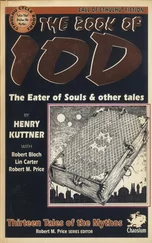Charles Henry Mackintosh - Notes on the Book of Deuteronomy, Volume I
Здесь есть возможность читать онлайн «Charles Henry Mackintosh - Notes on the Book of Deuteronomy, Volume I» — ознакомительный отрывок электронной книги совершенно бесплатно, а после прочтения отрывка купить полную версию. В некоторых случаях можно слушать аудио, скачать через торрент в формате fb2 и присутствует краткое содержание. Жанр: foreign_prose, foreign_antique, на английском языке. Описание произведения, (предисловие) а так же отзывы посетителей доступны на портале библиотеки ЛибКат.
- Название:Notes on the Book of Deuteronomy, Volume I
- Автор:
- Жанр:
- Год:неизвестен
- ISBN:нет данных
- Рейтинг книги:4 / 5. Голосов: 1
-
Избранное:Добавить в избранное
- Отзывы:
-
Ваша оценка:
- 80
- 1
- 2
- 3
- 4
- 5
Notes on the Book of Deuteronomy, Volume I: краткое содержание, описание и аннотация
Предлагаем к чтению аннотацию, описание, краткое содержание или предисловие (зависит от того, что написал сам автор книги «Notes on the Book of Deuteronomy, Volume I»). Если вы не нашли необходимую информацию о книге — напишите в комментариях, мы постараемся отыскать её.
Notes on the Book of Deuteronomy, Volume I — читать онлайн ознакомительный отрывок
Ниже представлен текст книги, разбитый по страницам. Система сохранения места последней прочитанной страницы, позволяет с удобством читать онлайн бесплатно книгу «Notes on the Book of Deuteronomy, Volume I», без необходимости каждый раз заново искать на чём Вы остановились. Поставьте закладку, и сможете в любой момент перейти на страницу, на которой закончили чтение.
Интервал:
Закладка:
All this is most blessedly true; it is largely taught and variously illustrated throughout the volume of inspiration; but the confession of sin, and the pardon thereof, must not be confounded with practical righteousness. There are two distinct conditions in which we may call upon God: we may call upon Him in deep contrition and be heard, or we may call upon Him with a good conscience and an uncondemning heart and be heard. But the two things are very distinct; and not only are they distinct in themselves, but they both stand in marked contrast with that indifference and hardness of heart which would presume to count on God in the face of positive disobedience and practical unrighteousness. It is this which is so dreadful in the sight of the Lord, and which must bring down His heavy judgment. Practical righteousness He owns and approves; confessed sin He can freely and fully pardon; but to imagine that we can put our trust in God while our feet are treading the path of iniquity, is nothing short of the most shocking impiety. "Trust ye not in lying words, saying, The temple of the Lord, The temple of the Lord, The temple of the Lord, are these. For if ye throughly amend your ways and your doings; if ye throughly execute judgment between a man and his neighbor; if ye oppress not the stranger, the fatherless, and the widow, and shed not innocent blood in this place, neither walk after other gods to your hurt: then will I cause you to dwell in this place, in the land that I gave to your fathers, forever and ever. Behold, ye trust in lying words, that cannot profit. Will ye steal, murder, and commit adultery, and swear falsely, and burn incense unto Baal, and walk after other gods whom ye know not; and come and stand before Me in this house, which is called by My name, and say, 'We are delivered to do all these abominations?'" (Jeremiah vii.)
God deals in moral realities. He desires truth in the inward parts; and if men will presume to hold the truth in unrighteousness, they must look out for His righteous judgment. It is the thought of all this that makes us feel the awful condition of the professing church. The solemn passage which we have just culled from the prophet Jeremiah, though bearing primarily upon the men of Judah and the inhabitants of Jerusalem, has a very pointed application to christendom. We find, in the third chapter of 2 Timothy, that all the abominations of heathenism, as detailed in the close of Romans i, are reproduced in the last days under the garb of the Christian profession, and in immediate connection with "a form of godliness." What must be the end of such a condition of things? Unmitigated wrath. The very heaviest judgments of God are reserved for that vast mass of baptized profession which we call christendom. The moment is rapidly approaching when all the beloved and blood-bought people of God shall be called away out of this dark and sinful, though so-called "Christian world," to be forever with the Lord, in that sweet home of love prepared in the Father's house. Then the "strong delusion" shall be sent upon christendom—upon those very countries where the light of a full-orbed Christianity has shone, where a full and free gospel has been preached, where the Bible has been circulated by millions, and where all, in some way or another, profess the name of Christ and call themselves Christians.
Конец ознакомительного фрагмента.
Текст предоставлен ООО «ЛитРес».
Прочитайте эту книгу целиком, на ЛитРес.
Безопасно оплатить книгу можно банковской картой Visa, MasterCard, Maestro, со счета мобильного телефона, с платежного терминала, в салоне МТС или Связной, через PayPal, WebMoney, Яндекс.Деньги, QIWI Кошелек, бонусными картами или другим удобным Вам способом.
1
Now six.
2
In referring to infidel writers, we should bear in mind that by far the most dangerous of such are those calling themselves Christians. In our young days, whenever we heard the word "infidel," we at once thought of a Tom Paine or a Voltaire; now, alas! we have to think of so-called bishops and doctors of the professing church. Tremendous fact!
3
The journey of Israel from Horeb to Kadesh-barnea illustrates but too forcibly the history of many souls in the matter of finding peace. Many of the Lord's beloved people go on for years, doubting and fearing, never knowing the blessedness of the liberty wherewith Christ makes His people free. It is most distressing, to any one who really cares for souls, to see the sad condition in which some are kept all their days, through legality, bad teaching, false manuals of devotion, and such like. It is a rare thing now-a-days to find in christendom a soul fully established in the peace of the gospel. It is considered a good thing—a sign of humility—to be always doubting. Confidence is looked upon as presumption. In short, things are turned completely upside down. The gospel is not known: souls are under law instead of under grace,—they are kept at a distance instead of being taught to draw nigh. Much of the religion of the day is a deplorable mixture of Christ and self, law and grace, faith and works. Souls are kept in a perfect muddle all their days.
Surely these things demand the grave consideration of all who occupy the responsible place of teachers and preachers in the professing church. There is a solemn day approaching, when all such will be called to render an account of their ministry.
4
"Lectures Introductory to the Pentateuch," by W. Kelly.
Интервал:
Закладка:
Похожие книги на «Notes on the Book of Deuteronomy, Volume I»
Представляем Вашему вниманию похожие книги на «Notes on the Book of Deuteronomy, Volume I» списком для выбора. Мы отобрали схожую по названию и смыслу литературу в надежде предоставить читателям больше вариантов отыскать новые, интересные, ещё непрочитанные произведения.
Обсуждение, отзывы о книге «Notes on the Book of Deuteronomy, Volume I» и просто собственные мнения читателей. Оставьте ваши комментарии, напишите, что Вы думаете о произведении, его смысле или главных героях. Укажите что конкретно понравилось, а что нет, и почему Вы так считаете.












